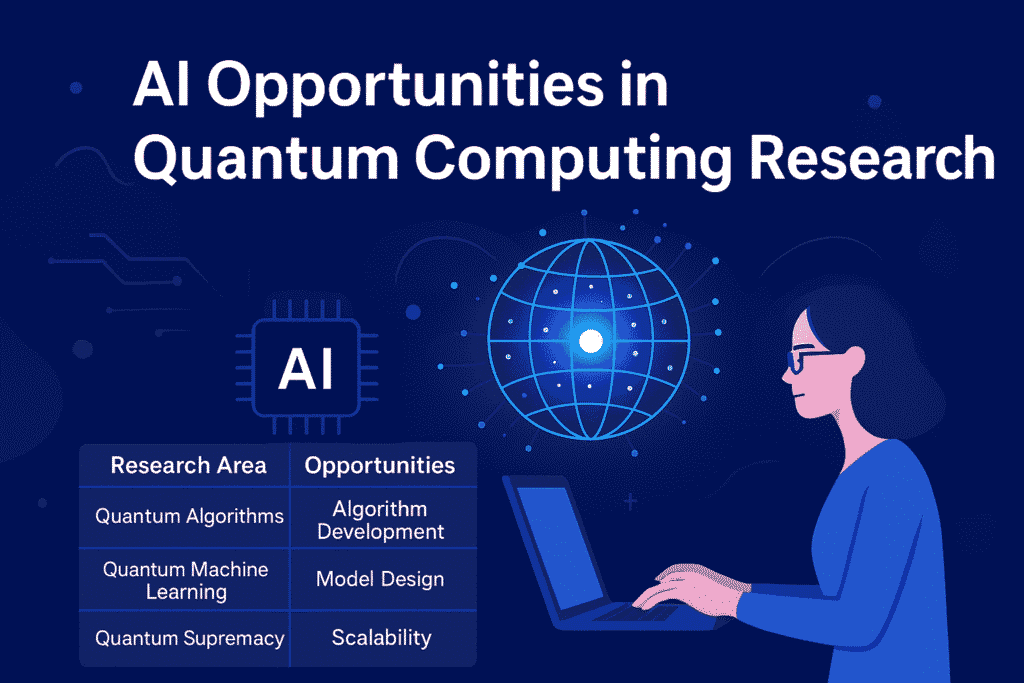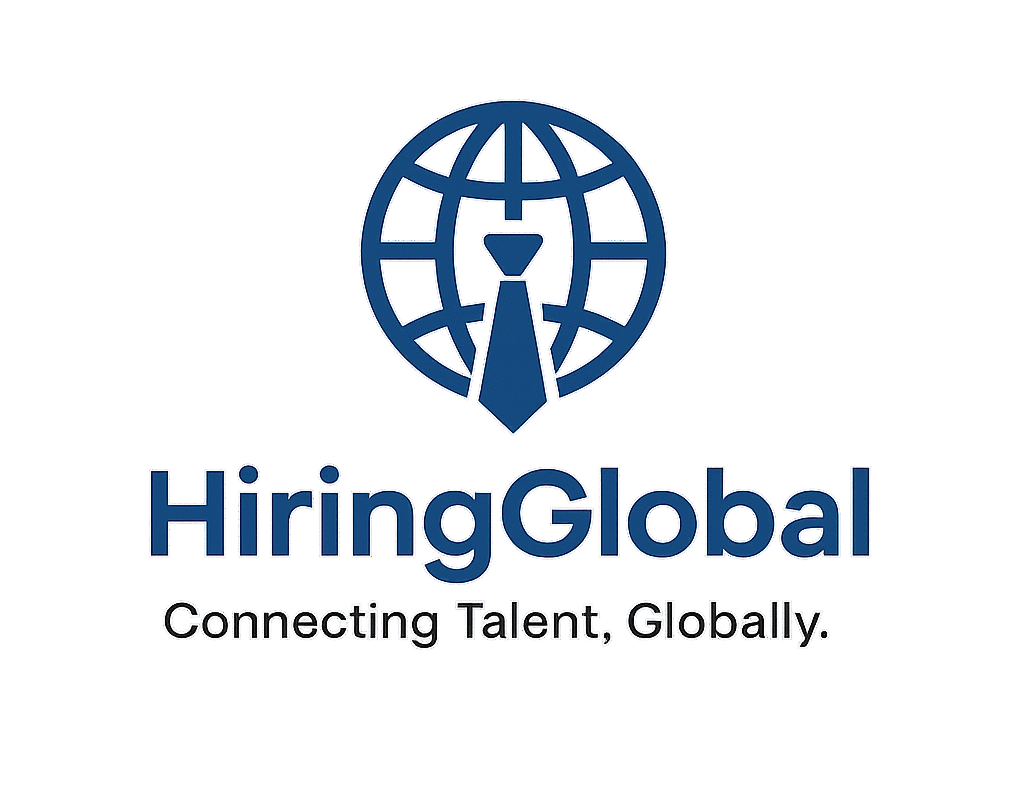Introduction: The Dawn of a Quantum-AI Era
We are living in a time of extraordinary technological evolution. Every decade brings innovations that transform how we live, work, and interact with the world. Among the most groundbreaking technologies of our era are Artificial Intelligence (AI) and Quantum Computing (QC). Each of these fields, on its own, has already made waves across industries. AI has given rise to smart algorithms capable of learning, reasoning, and decision-making, while quantum computing promises to solve complex problems beyond the reach of traditional machines. But what happens when these two transformative forces converge? The result is a synergy that could redefine the boundaries of human innovation.

Artificial Intelligence has steadily integrated into our daily lives, from voice assistants like Siri and Alexa to recommendation engines that power platforms such as Netflix, Amazon, and Spotify. In business, AI enables companies to predict consumer behavior, automate operations, and generate insights from massive datasets. Meanwhile, quantum computing is emerging as a next-generation paradigm in computing power. By leveraging the principles of quantum mechanics, quantum computers can handle calculations exponentially faster than even the most advanced classical supercomputers.
The convergence of these technologies is revolutionary because they complement each other perfectly. AI demands enormous computational power to train complex models and analyze data, which classical systems often struggle to provide. Quantum computing, with its ability to process information in parallel and handle vast datasets, offers a solution to AI’s computational bottlenecks. Together, they unlock possibilities that were once confined to the realm of science fiction.
Imagine a future where drug discovery happens in weeks instead of years, where climate models predict natural disasters with pinpoint accuracy, and where cybersecurity systems are virtually unbreakable. These scenarios are no longer theoretical; they are becoming achievable through Quantum-AI integration.
In this guide, we will explore the fundamentals of AI and quantum computing, explain why their convergence matters, and provide a roadmap for aspiring professionals. You’ll learn about real-world applications, research areas, career paths, required skills, and the ethical considerations that come with these advancements. By the end, you’ll have a clear understanding of why this field represents one of the most exciting opportunities of the 21st century — and how you can be part of it.
Table of Contents
Understanding the Fundamentals
To grasp the potential of AI-quantum convergence, it is essential to first understand each technology individually and then see how they work together to create something greater than the sum of their parts.
What is Artificial Intelligence?
Artificial Intelligence refers to the ability of machines to mimic human intelligence by learning from data, recognizing patterns, solving problems, and making decisions. AI has evolved rapidly over the past decade, driven by advances in algorithms, computing power, and the availability of massive datasets. Some of the core subfields of AI include:
- Machine Learning (ML): Systems that learn and improve over time without being explicitly programmed.
- Deep Learning (DL): A subset of ML that uses neural networks to model complex relationships, especially useful in image recognition and natural language processing.
- Natural Language Processing (NLP): Enables computers to understand and generate human language.
- Computer Vision: Allows machines to interpret and analyze visual information like images and videos.
- Reinforcement Learning: Training systems to make sequential decisions by rewarding desired behaviors.
AI has already transformed industries such as healthcare, finance, and manufacturing, but its growth is constrained by the limits of classical computing.
What is Quantum Computing?
Quantum computing is a fundamentally different way of processing information. While classical computers use bits that represent either 0 or 1, quantum computers use qubits, which can represent 0 and 1 simultaneously due to a phenomenon called superposition. Additionally, qubits can become entangled, meaning the state of one qubit directly influences another, even over long distances.
These quantum principles enable parallel processing at an unprecedented scale. For example, a problem that might take a classical computer thousands of years to solve could, in theory, be completed by a quantum computer in minutes.
Quantum computing is still an emerging field, but companies like Google, IBM, and Rigetti have already achieved significant milestones, such as demonstrating “quantum supremacy” — solving problems faster than any classical computer.
How AI and Quantum Computing Complement Each Other
AI requires immense computational resources to train large models, particularly in deep learning. As datasets grow larger and algorithms become more complex, classical systems struggle to keep up. Quantum computing offers the computational power to break through these barriers.
By integrating quantum capabilities into AI systems, we can:
- Train machine learning models exponentially faster.
- Analyze massive datasets more efficiently.
- Solve optimization problems with unprecedented accuracy.
- Develop entirely new algorithms that leverage quantum phenomena.
This symbiotic relationship between AI and quantum computing forms the foundation of Quantum AI, a field poised to revolutionize industries and scientific research.
Why AI Needs Quantum Computing
As powerful as AI has become, it faces fundamental limitations when running on classical hardware. Training a large deep learning model can take days, weeks, or even months, depending on the dataset size and computational resources available. Moreover, AI struggles with complex optimization problems involving a vast number of variables, such as simulating molecular interactions in drug discovery or modeling global climate patterns.
Quantum computing addresses these limitations by introducing:
- Massive parallelism: The ability to process numerous possibilities simultaneously.
- Faster optimization: Quantum algorithms excel at finding optimal solutions among countless variables.
- Improved efficiency: Tasks that are currently computationally prohibitive become manageable.
In essence, quantum computing acts as a catalyst for AI, enabling breakthroughs that would be impossible with classical systems alone. This integration is not just about speed; it opens doors to entirely new approaches in fields ranging from cybersecurity to healthcare.
Real-World Applications of Quantum-AI Integration
The convergence of AI and quantum computing is already producing tangible results across multiple industries. Here are some sectors where this synergy is making a significant impact:
Healthcare
Quantum AI accelerates drug discovery by simulating molecular interactions at an atomic level. This drastically reduces the time needed to develop new medications. It also enables personalized medicine, where treatments are tailored to a patient’s genetic profile and medical history.
Finance
Financial institutions use Quantum AI for risk modeling, fraud detection, and portfolio optimization. Quantum-enhanced algorithms can analyze complex market data in real-time, improving decision-making and minimizing losses.
Cybersecurity
Quantum AI helps develop quantum-safe encryption techniques that protect sensitive data from cyberattacks. It also enhances threat detection by identifying anomalies in network traffic faster and more accurately.
Climate Science
By combining quantum power with AI, scientists can create highly accurate climate models, enabling better disaster preparedness and policy planning.
Space Exploration
NASA and other space agencies use Quantum AI to simulate spacecraft designs and optimize trajectories, reducing mission costs and improving success rates.
Energy Sector
Quantum AI optimizes energy grids, predicts consumption patterns, and aids in developing advanced materials for renewable energy production.
Industry-Wise Applications of Quantum AI
| Industry | Application | Benefits |
|---|---|---|
| Healthcare | Drug discovery, personalized medicine | Faster treatments, reduced costs, precision care |
| Finance | Fraud detection, portfolio optimization | Better predictions, reduced financial risks |
| Cybersecurity | Quantum encryption, threat detection | Unbreakable security, proactive threat response |
| Climate Science | Environmental simulations, disaster prediction | Accurate models, better sustainability strategies |
| Space Exploration | Data analysis, mission planning | Improved navigation, deep space exploration |
| Energy Sector | Smart grid optimization, renewable energy | Efficient energy usage, reduced waste |
Why AI Needs Quantum Computing
Artificial Intelligence has achieved tremendous progress in recent years, with breakthroughs in natural language processing, computer vision, and robotics. However, even with the most advanced classical supercomputers, AI faces inherent limitations. Traditional computing systems operate using bits—either 0 or 1—which creates bottlenecks when solving problems that involve massive datasets or extremely complex computations.
One of the major challenges for modern AI is its need to process vast amounts of unstructured data in real-time. For instance, training a deep learning model like GPT or BERT can take days or even weeks on high-performance GPUs, consuming enormous amounts of energy. As AI models grow in size and complexity, they require exponentially more computational resources. This is where classical computing begins to falter.
Quantum computing introduces a paradigm shift by leveraging qubits instead of bits. Unlike classical bits, qubits can exist in multiple states simultaneously due to superposition, and they can also interact through entanglement. This allows quantum computers to process complex calculations in parallel, dramatically speeding up operations that would take classical computers centuries to complete.
For AI, this means faster training times, more accurate predictions, and the ability to tackle previously unsolvable problems. Consider optimization algorithms, which are critical for industries such as logistics, healthcare, and finance. Classical algorithms may struggle to find optimal solutions in a reasonable timeframe. A quantum algorithm, on the other hand, can evaluate countless possibilities at once, leading to exponentially faster and better outcomes.
Another area where quantum computing shines is probabilistic modeling. AI systems like generative models rely heavily on probability distributions to make predictions or generate data. Quantum computing naturally works with probabilities at the fundamental level, making it exceptionally well-suited for this type of computation.
In essence, quantum computing is not just a performance booster for AI—it is a necessity for AI to continue evolving. Without quantum advancements, the growth of AI could stagnate, especially as problems like drug discovery, climate modeling, and cryptographic analysis require computational resources beyond what classical systems can provide.
By integrating quantum technologies, AI will be empowered to reach new heights, pushing the boundaries of what machines can achieve in terms of intelligence, speed, and efficiency. This convergence marks the beginning of a new technological revolution that will shape the future of industries, governments, and everyday life.

Real-World Applications of Quantum-AI Integration
The fusion of AI and quantum computing is not a theoretical concept confined to research labs—it is already beginning to transform industries worldwide. The combination of these technologies enables breakthroughs across diverse domains by providing unprecedented computational power and intelligent decision-making capabilities. Below are some of the most promising application areas:
Healthcare
AI-powered healthcare systems are already improving diagnostics, drug discovery, and patient care. However, traditional AI models often take years to analyze vast biological datasets and simulate potential drug interactions. Quantum-enhanced AI can accelerate these processes dramatically.
For instance, simulating molecular structures for new drug compounds is an incredibly complex task for classical computers. Quantum computing allows researchers to model molecules at the atomic level with remarkable accuracy, reducing the time and cost of drug development. Additionally, quantum-AI systems can personalize treatments by analyzing a patient’s genetic data in real-time.
Finance
Financial institutions deal with massive datasets, from market trends to customer transactions. Traditional AI is already used for fraud detection, risk assessment, and algorithmic trading, but it has limitations in predicting chaotic financial systems. Quantum computing provides a way to process this data more effectively, enhancing decision-making and risk management.
Quantum-AI integration can optimize portfolios, improve investment strategies, and create robust systems for fraud detection by analyzing patterns that are too complex for classical algorithms.
Cybersecurity
As cyber threats grow more sophisticated, the need for advanced security measures has never been greater. Quantum computing introduces both risks and opportunities in this domain. While quantum systems can potentially break traditional encryption methods, they can also develop new, virtually unbreakable security protocols.
AI-driven quantum cybersecurity solutions can detect and respond to threats in real-time. These systems can predict potential vulnerabilities before they are exploited, creating a proactive defense strategy that evolves alongside cybercriminal tactics.
Climate Science
Climate modeling requires processing enormous datasets to predict weather patterns, track environmental changes, and develop sustainable strategies. Classical computing often struggles with the complexity of these models, leading to inaccuracies.
Quantum-AI systems can simulate environmental processes at a level of detail never before possible. This allows scientists to create precise models for climate change, predict natural disasters, and design innovative solutions for sustainability and renewable energy.
Space Exploration
The vastness of space presents challenges that classical computing cannot fully address. From navigation systems for interstellar travel to analyzing cosmic data, quantum-AI integration offers new possibilities. NASA and other space agencies are exploring how quantum systems can help analyze astronomical data, identify habitable planets, and optimize spacecraft trajectories.
Energy Sector
The energy industry faces challenges in optimizing energy grids, reducing waste, and transitioning to renewable sources. AI already plays a role in managing smart grids and predicting energy consumption, but quantum computing can take this further.
By combining AI with quantum algorithms, energy providers can model complex systems, reduce inefficiencies, and accelerate the adoption of green technologies like solar and wind power.
Industry-Wise Applications of Quantum-AI Integration
| Industry | Application | Benefits |
|---|---|---|
| Healthcare | Drug discovery, personalized medicine | Faster treatments, reduced costs, precision care |
| Finance | Fraud detection, portfolio optimization | Better predictions, reduced financial risks |
| Cybersecurity | Quantum encryption, threat detection | Unbreakable security, proactive threat response |
| Climate Science | Environmental simulations, disaster prediction | Accurate models, better sustainability strategies |
| Space Exploration | Data analysis, mission planning | Improved navigation, deep space exploration |
| Energy Sector | Smart grid optimization, renewable energy | Efficient energy usage, reduced waste |
The applications of quantum-AI systems are rapidly expanding as more industries recognize the potential of these technologies. Early adopters will gain a significant competitive edge, setting the stage for a new era of innovation and efficiency.
Key Research Areas and Innovations
The intersection of quantum computing and artificial intelligence is driving a surge of innovation across multiple fields. Researchers worldwide are exploring how these two powerful technologies can be combined to create entirely new solutions, tools, and frameworks that will revolutionize industries. Below are some of the most critical research areas where advancements are taking place and shaping the future of quantum-AI integration.
Quantum Machine Learning (QML)
Quantum Machine Learning is one of the most exciting areas of research today. Traditional machine learning algorithms rely on classical computers to analyze data and identify patterns. While effective, these algorithms are constrained by the limits of classical hardware. Quantum computing, with its ability to process information simultaneously through superposition and entanglement, can significantly enhance machine learning.
QML focuses on designing algorithms that run on quantum systems, enabling much faster data analysis. These algorithms can tackle complex problems, such as high-dimensional datasets, that are difficult for classical systems to handle. For example, in image recognition tasks, a quantum machine learning model can process multiple images in parallel, reducing processing time exponentially.
The potential applications of QML are vast, ranging from real-time fraud detection in financial systems to improving accuracy in medical diagnostics. Researchers are also exploring hybrid approaches, where quantum algorithms work alongside classical systems to create more efficient machine learning workflows.
Quantum Neural Networks (QNNs)
Quantum Neural Networks represent a fusion of deep learning principles with quantum mechanics. Similar to how traditional neural networks mimic the human brain by using layers of interconnected nodes, QNNs use qubits and quantum gates to form layers of quantum nodes.
These networks have the potential to process data more efficiently and accurately than classical neural networks. A key advantage of QNNs is their ability to manage vast amounts of data without requiring massive hardware infrastructures. For instance, they can help improve speech recognition systems, enable faster natural language processing, and create advanced predictive analytics models.
One promising area of research involves developing QNNs for drug discovery. By leveraging quantum principles, these networks can simulate molecular interactions at a subatomic level, making drug testing faster and more precise.

AI-Driven Quantum Hardware Design
The development of quantum computers themselves is a complex process that requires precise engineering and design. AI is now being used to optimize the hardware development process for quantum systems. This includes everything from improving the physical design of qubits to reducing error rates during computations.
AI can analyze massive datasets generated from quantum experiments and identify patterns that humans might overlook. This accelerates the development of stable, scalable quantum hardware, which is essential for real-world applications.
For example, reinforcement learning algorithms can be used to test and refine quantum circuit layouts, significantly reducing the time it takes to design new architectures. As a result, AI is playing a crucial role in making quantum computing more accessible and practical for everyday use.
Quantum Cybersecurity
With the advent of quantum computing, current encryption methods are at risk of becoming obsolete. Classical cryptographic algorithms, such as RSA and ECC, rely on the difficulty of factoring large numbers or solving certain mathematical problems—a task that classical computers find challenging but quantum computers can perform efficiently.
To counteract this threat, researchers are developing post-quantum cryptography, which uses algorithms resistant to quantum attacks. AI is instrumental in this process, as it can help identify potential vulnerabilities and suggest stronger encryption protocols.
Additionally, AI-driven quantum cybersecurity systems can proactively monitor networks for suspicious activity, predict attack patterns, and provide real-time defense mechanisms. This is especially important for protecting sensitive data in industries like finance, healthcare, and government.
Quantum Natural Language Processing (QNLP)
Natural Language Processing (NLP) is a core area of AI that enables machines to understand and generate human language. Classical NLP algorithms have made significant progress, powering technologies like chatbots, translation services, and voice assistants.
Quantum NLP takes this further by using quantum algorithms to process language data more efficiently. Quantum systems can capture subtle nuances in human language that classical systems struggle to interpret, leading to more accurate translations and better contextual understanding.
For instance, a QNLP-powered system could analyze massive multilingual datasets in real-time, making it invaluable for global companies and organizations. It could also enhance sentiment analysis, allowing businesses to gain deeper insights into customer feedback and market trends.
These innovations are just the tip of the iceberg. As research continues, new breakthroughs will emerge, bringing us closer to a world where quantum-AI systems seamlessly integrate into our daily lives.
Career Opportunities in AI-Quantum Research
The rapid growth of quantum computing and AI integration is creating a wide range of career opportunities for professionals across different backgrounds. As this field is still emerging, there is a high demand for skilled individuals who can bridge the gap between AI and quantum technologies. Below are some of the most promising career roles, along with the skills and qualifications needed to succeed.
Quantum Machine Learning Engineer
These professionals design and implement quantum algorithms for machine learning tasks. They work on developing hybrid systems that combine classical and quantum computing to solve complex problems.
Key skills include expertise in quantum computing frameworks like Qiskit or Cirq, proficiency in Python, and a strong understanding of machine learning principles.
Quantum Algorithm Developer
Algorithm developers focus on creating new quantum algorithms that can outperform classical ones. Their work is essential for advancing both quantum computing and AI.
Strong mathematical skills, particularly in linear algebra and probability theory, are crucial for this role.
Quantum Hardware Engineer
Hardware engineers are responsible for designing and maintaining quantum systems. They work closely with AI specialists to ensure that quantum hardware is optimized for machine learning tasks.
Knowledge of electronics, physics, and quantum mechanics is essential for this position.
AI-Quantum Research Scientist
Research scientists conduct cutting-edge studies to explore how AI and quantum computing can be integrated. They often work in academic institutions, government labs, or private research organizations.
A Ph.D. in computer science, physics, or a related field is typically required.
Data Scientist with Quantum Specialization
Data scientists who specialize in quantum computing apply quantum principles to analyze and interpret complex datasets. They play a key role in industries like finance, healthcare, and logistics.
Cybersecurity Specialist in Quantum Systems
As quantum computing poses new cybersecurity challenges, there is a growing need for specialists who understand both AI and quantum technologies.
These professionals develop advanced security protocols and help organizations transition to post-quantum cryptographic systems.
Career Roles, Skills, and Salary Expectations
| Career Role | Key Skills Required | Salary Range (Annual) |
|---|---|---|
| Quantum Machine Learning Engineer | Qiskit, Cirq, Python, Machine Learning | $90,000 – $150,000 |
| Quantum Algorithm Developer | Linear Algebra, Probability, Quantum Mechanics | $100,000 – $160,000 |
| Quantum Hardware Engineer | Electronics, Physics, Quantum Circuit Design | $80,000 – $140,000 |
| AI-Quantum Research Scientist | Research, AI, Quantum Theory, Data Analysis | $110,000 – $180,000 |
| Data Scientist (Quantum Focus) | Data Analysis, Python, Quantum Basics | $85,000 – $130,000 |
| Quantum Cybersecurity Specialist | Post-Quantum Cryptography, AI, Threat Modeling | $95,000 – $150,000 |
The demand for these roles is expected to grow rapidly over the next decade as more industries begin adopting quantum-AI technologies. This makes it an ideal time for students and professionals to start building expertise in this area.
Skills and Tools You Need
To thrive in the rapidly evolving field of AI and quantum computing, professionals need to develop a unique combination of technical and soft skills. Since this is a highly interdisciplinary area, having expertise across multiple domains will set you apart from the competition. The following are the essential skills and tools required to excel in this exciting space.
Technical Skills
- Programming Proficiency
Programming is the foundation of both AI and quantum computing. Developers must be comfortable with a variety of languages and frameworks.- Python: The most widely used language in AI and quantum computing because of its simplicity and versatility. Libraries like TensorFlow, PyTorch, and Scikit-learn are vital for machine learning.
- Quantum-Specific Languages:
- Qiskit (IBM): For building quantum circuits and algorithms.
- Cirq (Google): For creating and simulating quantum algorithms.
- Q#: Developed by Microsoft for quantum development on its Azure Quantum platform.
- C++ and Java: Useful for high-performance computing and integration with classical systems.
- Machine Learning Expertise
Since the integration of quantum computing with AI revolves around enhancing machine learning, having a strong foundation in ML concepts is critical.- Deep Learning: Understanding neural networks and architectures like CNNs, RNNs, and GANs.
- Reinforcement Learning: Important for optimization tasks and hybrid systems.
- Natural Language Processing (NLP): Essential for building QNLP applications.
- Quantum Theory Fundamentals
A solid understanding of the principles of quantum mechanics is necessary to design and implement quantum algorithms.- Superposition and Entanglement: Core concepts for working with qubits.
- Quantum Gates and Circuits: Understanding how quantum operations work at a fundamental level.
- Quantum Algorithms: Shor’s algorithm, Grover’s algorithm, and others form the backbone of quantum problem-solving.
- Mathematics for Quantum-AI
Mathematics forms the basis of both AI and quantum computing.- Linear Algebra: Essential for understanding quantum state transformations and machine learning algorithms.
- Probability Theory: Crucial for quantum measurements and probabilistic AI models.
- Calculus and Statistics: Important for optimization and modeling processes.
- Big Data and Cloud Computing
Many quantum computing platforms are hosted on the cloud, so experience with cloud technologies is highly valuable.- AWS Braket for quantum computing.
- Microsoft Azure Quantum for hybrid classical-quantum systems.
- Google Cloud Quantum AI for running large-scale experiments.
Knowledge of big data frameworks like Hadoop and Spark is also beneficial, as quantum systems often handle massive datasets.
Soft Skills
While technical skills are vital, soft skills play an equally important role in this interdisciplinary field.
- Problem-Solving: The ability to analyze complex issues and come up with innovative solutions is crucial.
- Critical Thinking: Quantum-AI research often involves dealing with abstract concepts that require deep analytical thought.
- Teamwork and Collaboration: Projects in this field typically involve teams of physicists, computer scientists, and engineers.
- Adaptability: Given the rapid pace of technological change, being able to quickly learn and adapt is essential.
- Communication: Being able to explain complex concepts to non-technical stakeholders is invaluable.

Certifications and Online Courses
For those looking to break into the field, certifications and online courses are an excellent way to gain structured knowledge and credibility.
- IBM Quantum Developer Certification: A recognized credential for quantum programming skills.
- Google Quantum AI Training: Focuses on Cirq and quantum algorithm development.
- Microsoft Certified: Azure Quantum Specialist: Provides expertise in hybrid systems.
- Coursera Specializations: Courses on quantum mechanics, machine learning, and AI integration.
- edX Programs: Offer comprehensive tracks on quantum computing and related fields.
Completing these certifications not only strengthens your resume but also demonstrates your commitment to staying current in this rapidly evolving area.
Challenges and Ethical Considerations
While the integration of AI and quantum computing holds immense promise, it also brings forth a range of challenges and ethical concerns that must be addressed to ensure the technology is developed responsibly.
Technical Challenges
One of the most pressing technical issues is the instability of qubits. Qubits are highly sensitive to environmental factors like temperature and electromagnetic interference, which can cause errors in computations. Building quantum hardware that maintains qubit stability over time remains a significant hurdle.
Another challenge lies in scaling quantum systems. While current quantum computers have a limited number of qubits, real-world applications will require thousands or even millions of stable qubits. This level of scalability is still years away from being practical.
Additionally, integration with classical systems is complex. Many industries will need to operate in a hybrid environment where classical and quantum computing coexist seamlessly. Developing software and infrastructure to support this integration is a major challenge for researchers and engineers.
Talent Shortage
There is currently a significant shortage of professionals with expertise in both AI and quantum computing. The interdisciplinary nature of the field makes it difficult to find individuals who possess deep knowledge in both areas. This talent gap could slow the pace of innovation unless more educational programs and training opportunities are developed.
High Development Costs
Quantum hardware is extremely expensive to build and maintain. The costs associated with research, development, and deployment of quantum systems are prohibitive for smaller companies and startups, potentially leading to a concentration of power among a few large corporations and governments.
Ethical Issues
As with any powerful technology, there are ethical concerns that must be addressed.
- Data Privacy: Quantum-AI systems will have access to vast amounts of sensitive data, raising questions about privacy and consent.
- Surveillance Risks: Governments or organizations could misuse the technology for mass surveillance.
- Job Displacement: Automation driven by quantum-AI systems may lead to job losses in certain sectors, necessitating strategies for workforce retraining.
Global Governance and Regulation
Given the global implications of quantum-AI technology, international cooperation is essential. Policymakers must work together to create regulations that ensure ethical use while encouraging innovation. This includes establishing guidelines for cybersecurity, data handling, and equitable access to quantum resources.
Without proper governance, the risks of misuse could outweigh the potential benefits, leading to societal harm.
Future Outlook: Where This Field is Heading
The future of AI and quantum computing promises groundbreaking advancements that will reshape industries, economies, and societies. By 2030 and beyond, several key developments are expected to take place:
- Quantum Cloud Services: Companies will be able to access quantum computing resources through the cloud, making the technology more widely available to researchers and businesses.
- Revolutionizing Healthcare: From personalized medicine to advanced diagnostics, quantum-AI systems will enable faster and more accurate healthcare solutions.
- Unhackable Cybersecurity: Quantum-based encryption will create virtually unbreakable security systems, protecting sensitive data from cyberattacks.
- Optimized Global Logistics: Quantum algorithms will revolutionize supply chain management by optimizing routes, reducing costs, and minimizing environmental impact.
- AI-Driven Scientific Discoveries: The combination of AI’s intelligence and quantum computing’s processing power will lead to unprecedented breakthroughs in fields like physics, chemistry, and climate science.
As these developments unfold, industries will need to adapt to new ways of operating. Governments will play a critical role in supporting innovation while ensuring that the benefits are shared equitably.
For professionals entering the field, the coming decade represents an unparalleled opportunity to shape the future of technology and society.
Conclusion: Be Part of the Revolution
The convergence of AI and quantum computing is not just a technological evolution—it’s a revolution that has the potential to transform every aspect of our lives. From curing diseases to securing digital infrastructures and exploring the universe, the possibilities are limitless.
For aspiring professionals, now is the perfect time to get involved. By developing the necessary skills, pursuing education and certifications, and staying engaged with cutting-edge research, you can position yourself at the forefront of this rapidly growing field.
The world is entering a new era where quantum-AI systems will drive innovation on a scale never seen before. The question is, will you be a spectator watching from the sidelines, or will you seize the opportunity to become a leader in shaping the future?
The journey starts today, and the impact you can make is limited only by your imagination and determination.
